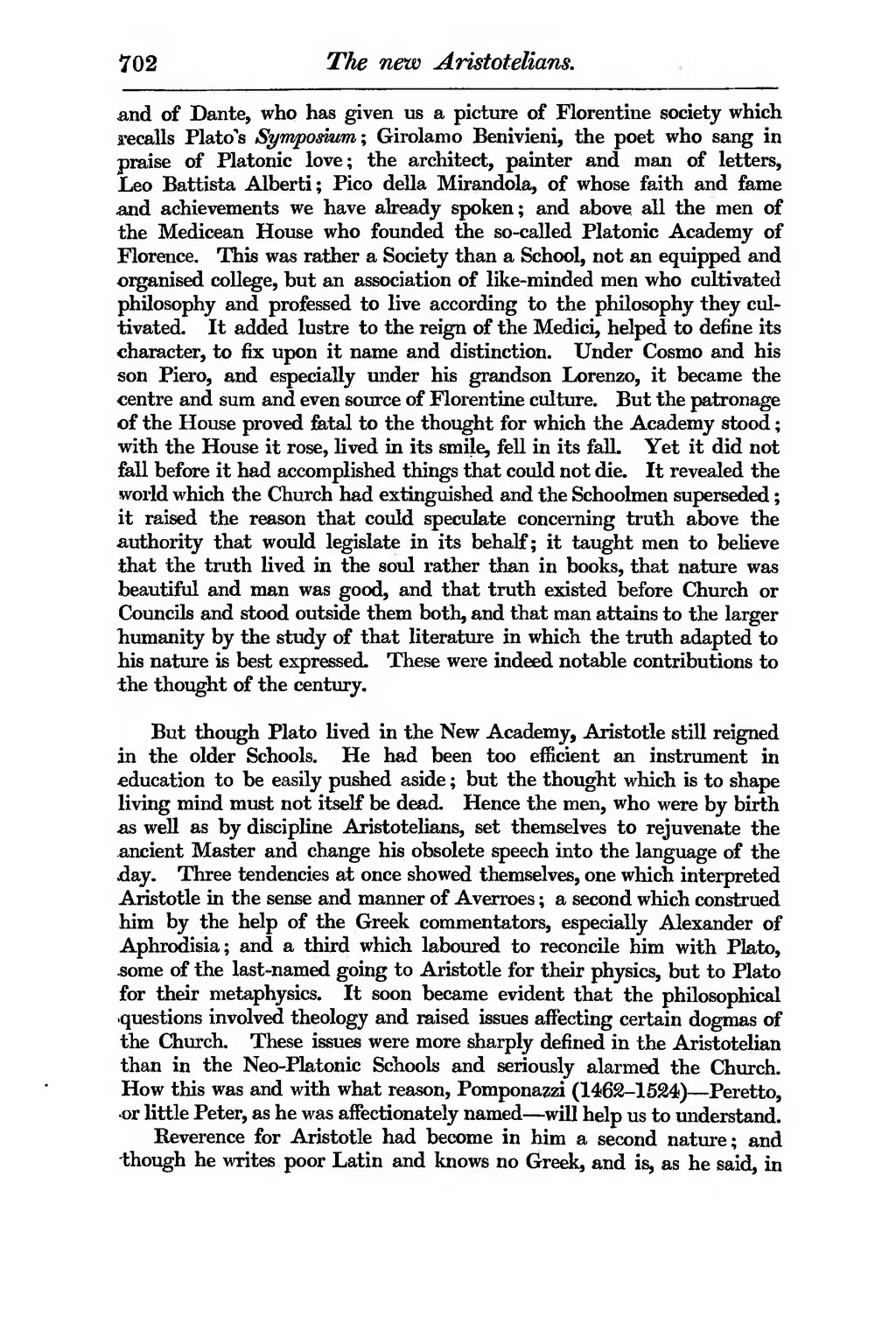and of Dante, who has given us a picture of Florentine society which recalls Plato's Symposium; Girolamo Benivieni, the poet who sang in praise of Platonic love; the architect, painter and man of letters, Leo Battista Alberti; Pico della Mirandola, of whose faith and fame and achievements we have already spoken; and above all the men of the Medicean House who founded the so-called Platonic Academy of Florence. This was rather a Society than a School, not an equipped and organised college, but an association of like-minded men who cultivated philosophy and professed to live according to the philosophy they cultivated. It added lustre to the reign of the Medici, helped to define its character, to fix upon it name and distinction. Under Cosmo and his son Piero, and especially under his grandson Lorenzo, it became the centre and sum and even source of Florentine culture. But the patronage of the House proved fatal to the thought for which the Academy stood; with the House it rose, lived in its smile, fell in its fall. Yet it did not fall before it had accomplished things that could not die. It revealed the world which the Church had extinguished and the Schoolmen superseded; it raised the reason that could speculate concerning truth above the authority that would legislate in its behalf; it taught men to believe that the truth lived in the soul rather than in books, that nature was beautiful and man was good, and that truth existed before Church or Councils and stood outside them both, and that man attains to the larger humanity by the study of that literature in which the truth adapted to his nature is best expressed. These were indeed notable contributions to the thought of the century.
But though Plato lived in the New Academy, Aristotle still reigned in the older Schools. He had been too efficient an instrument in education to be easily pushed aside; but the thought which is to shape living mind must not itself be dead. Hence the men, who were by birth as well as by discipline Aristotelians, set themselves to rejuvenate the ancient Master and change his obsolete speech into the language of the day. Three tendencies at once showed themselves, one which interpreted Aristotle in the sense and manner of Averroes; a second which construed him by the help of the Greek commentators, especially Alexander of Aphrodisia; and a third which laboured to reconcile him with Plato, some of the last-named going to Aristotle for their physics, but to Plato for their metaphysics. It soon became evident that the philosophical questions involved theology and raised issues affecting certain dogmas of the Church. These issues were more sharply defined in the Aristotelian than in the Neo-Platonic Schools and seriously alarmed the Church. How this was and with what reason, Pomponazzi (1462-1524)-Peretto, or little Peter, as he was affectionately named-will help us to understand.
Reverence for Aristotle had become in him a second nature; and though he writes poor Latin and knows no Greek, and is, as he said, in
